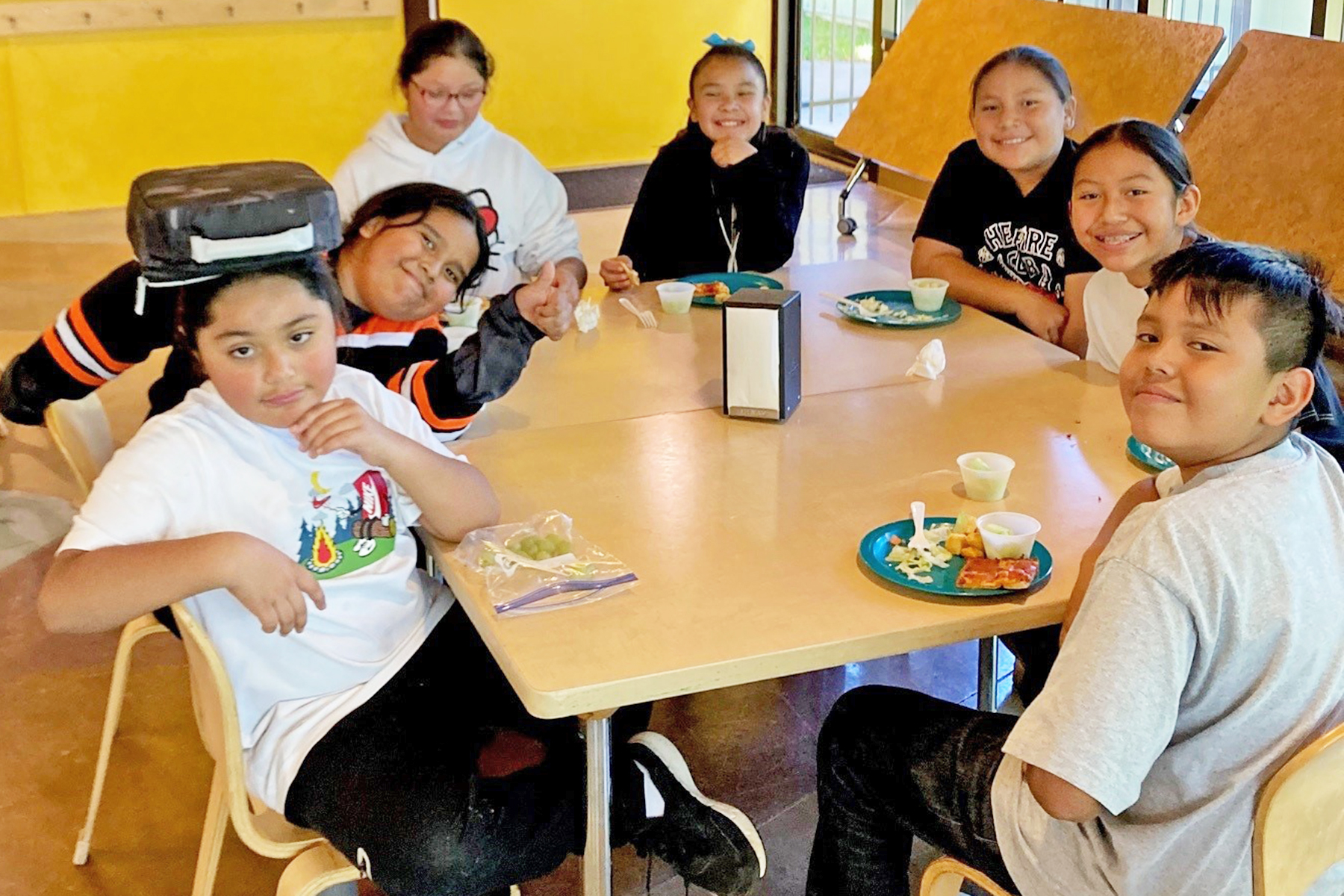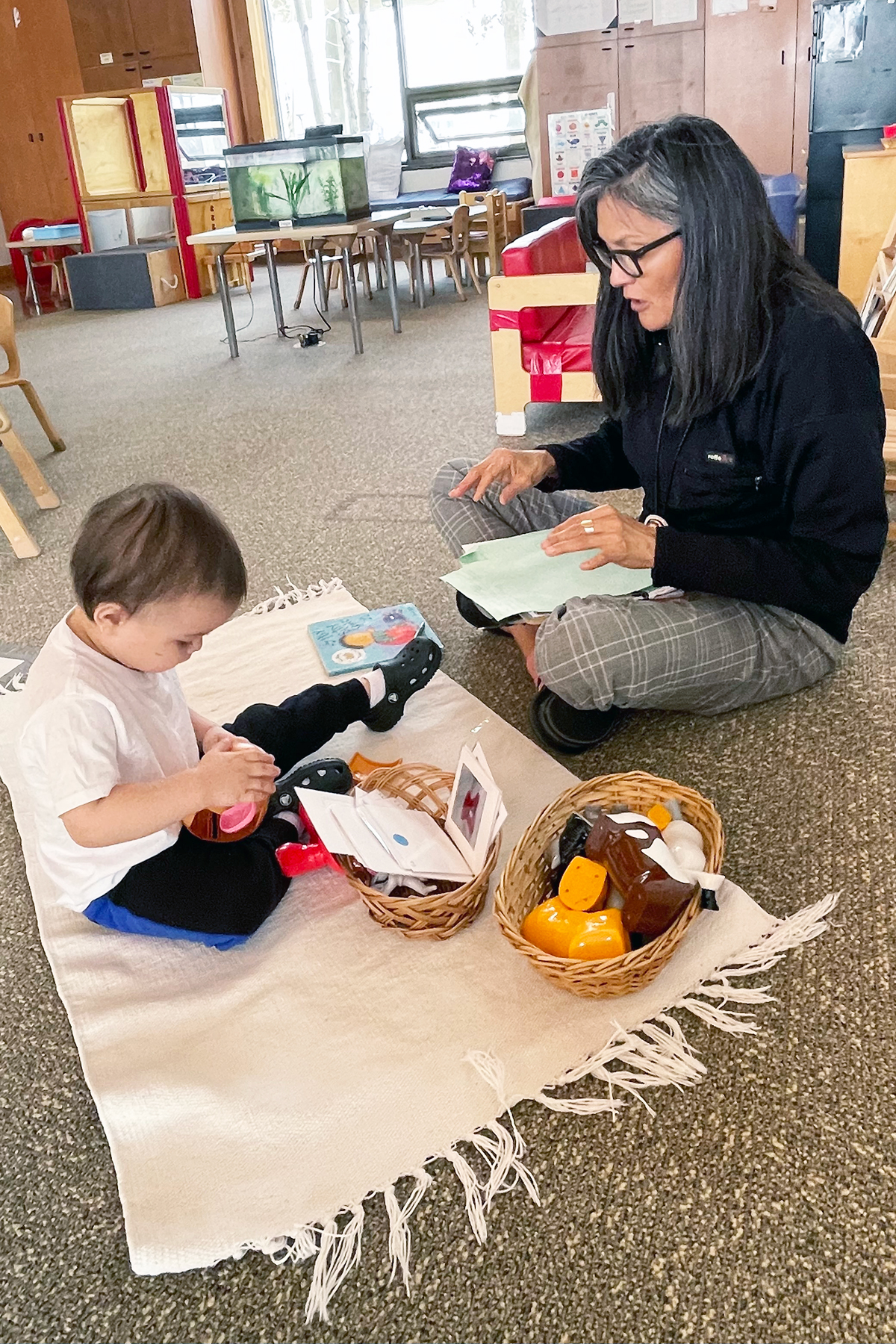Reading the Southern Ute language
Using the Tribal Council approved Ute Dictionary, I have been trying to provide information to help with reading the Southern Ute Language. I hope you find these useful as we continue to grow the language.
ch – as in chaghay – sounds like ch in chat – means to sew
gh – as in ‘apaghay – sounds like g but further back in the throat – means to speak
kh – as in chakhachi – sounds like k but further back in the throat – means younger brother
qh – as in qoqho – sounds like k but even further back in the throat – means bullsnake
In the Drum edition from two weeks ago:
g – as in núugani – sounds like g in get – means tipi
k – as in kiipu – sounds like k in kitty – means elbow
m – as in mamachi – sounds like m in mat – means woman
n – as in na’awaapuuni – sounds like n in not – means beautiful
p – as in paa – sounds like p in pat – means water
q – as in qoqho – sound like k, but further back in the throat – means bullsnake
r – as in núuruachi – sounds like t in the word butter – means baby
In the Drum edition from four weeks ago:
‘ – as in taa’ – sounds like the air space between uh’oh
_ – ‘ivetu – underline – means these vowels are devoiced.
a – as in taa’ – sounds like a in father – means shirt, clothes
e – as in ‘ivetu – sounds like e in met – means ‘on here’
i – as in ‘ivetu – sounds like i in Wii – means ‘on here’
o – as in ‘aghochi – sounds like o in note – means ‘dish’
o – as in ‘oaqaro – sounds like er in her – means yellow
u – as in ‘uwaru – sounds like o in who – means ‘rain’
u – as in uu – sounds like oo while frowning – means ‘yes’
“Long Ago”
A story written in Ute by the SUIMA lower elementary students.
Wíitus nuuchiu pa’amanuni; Akatavuchi, Ayovi, Kwiaghatupiivatu, Muguavi, Muuratachi, Míipuchi, Kwanamuguavi, Sukusapaghatu, Cassius, ‘Ununiruwa kiyay páanukwitu tuuravachi. Tavinikyaaqh, tari’iaqh, mi’ichiuwatiaqh. Kwiyaghatupiiatu cha’apagu pagucha’anapwa ‘uruvas inimiipuchu. Sukusapaghatu chayaghanaivichi. Muuratachi tamu’ini páanukwitu. Ayovi chaua qhaqháaruchi. Muguavi ́’uu’ini. ‘Ununiru ‘uwapaghapáanukwitu. Akatavuchi ka’arupa’atu karunapu. Cassius tayunikwáatu. Kwanamuguavi ‘inighani.
English translation:
Long ago all the Utes: Red Rabbit, Dove, Bear, Heart, Hummingbird Small, Eagle-heart, One Horned Rhino, Cassius, and Thunder were outside playing in the Pine River. It was a day of sunshine. It was hot. There was a little rain. Bear was running to catch a fish with a fishing pole that was a little straight. Dove caught a chicken. Heart farted. Thunder jumped in the river. Red Rabbit was restless in a chair. Cassius was on a bicycle. Eagle-heart made a house.




